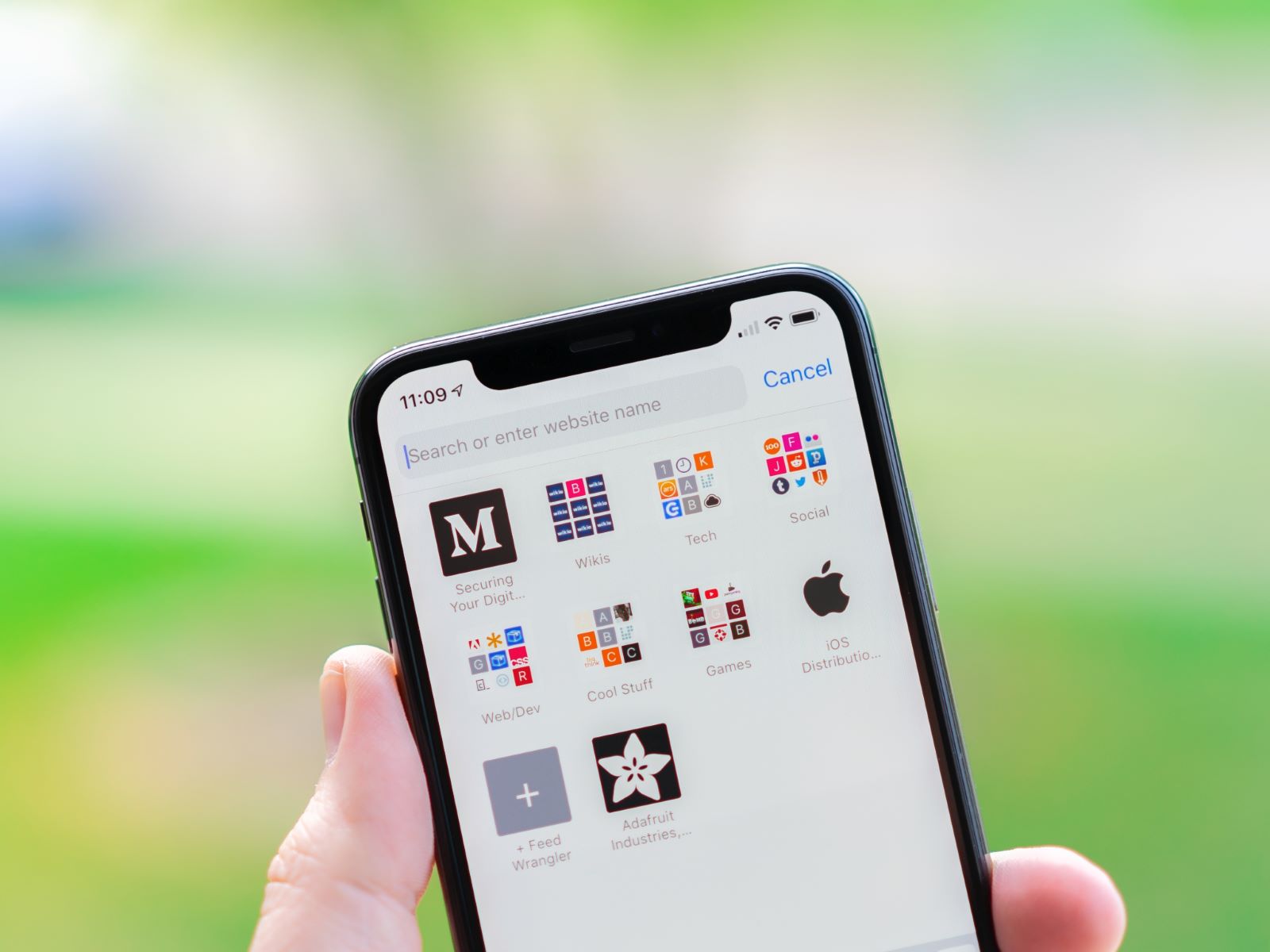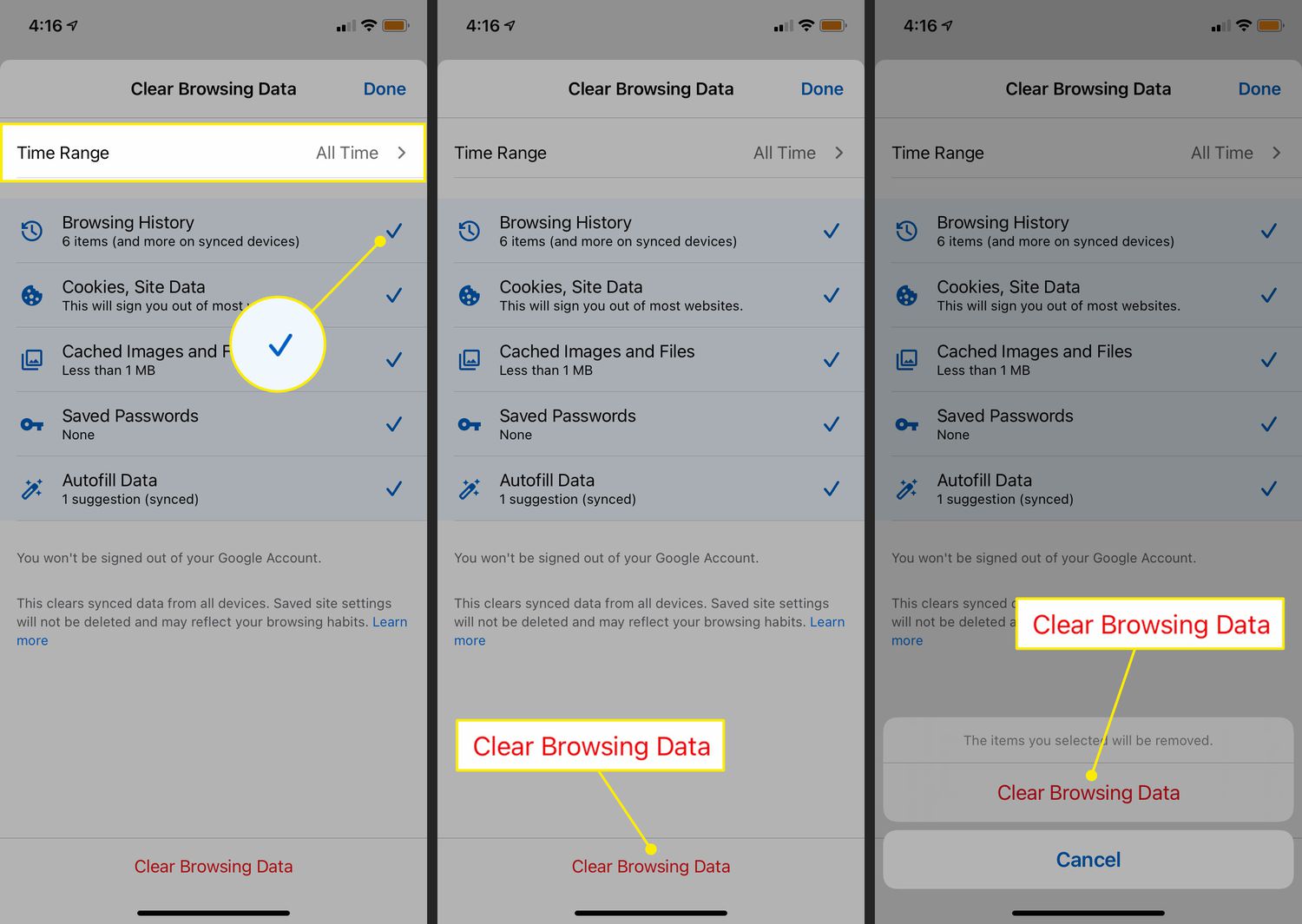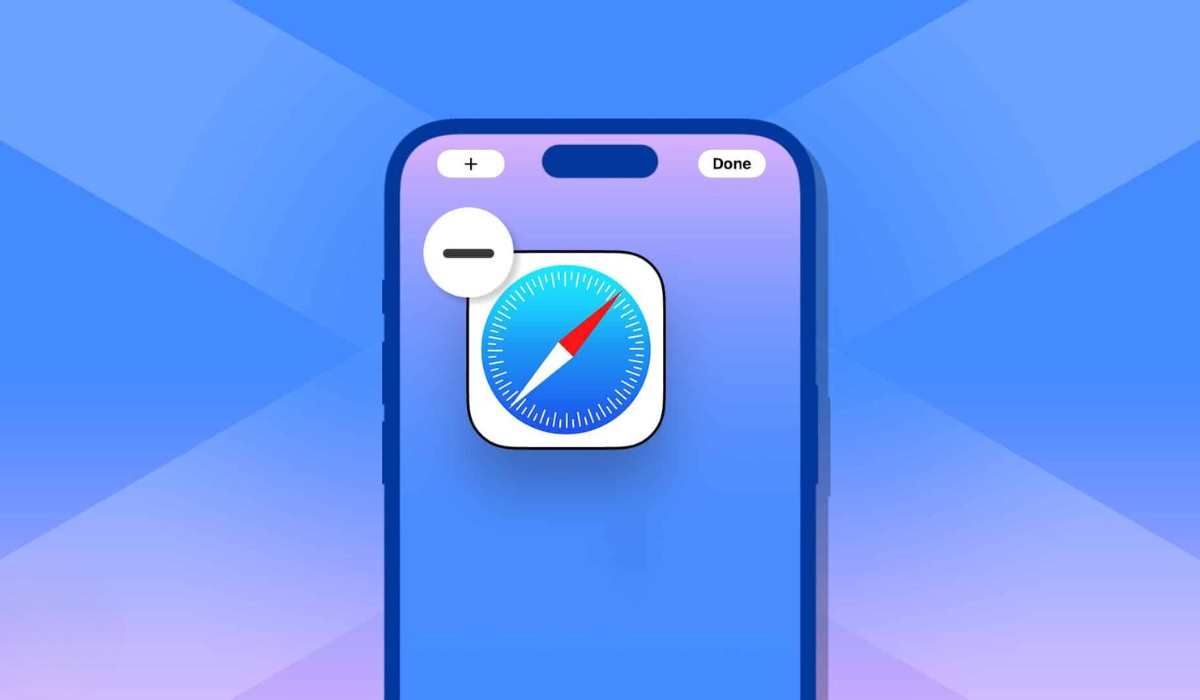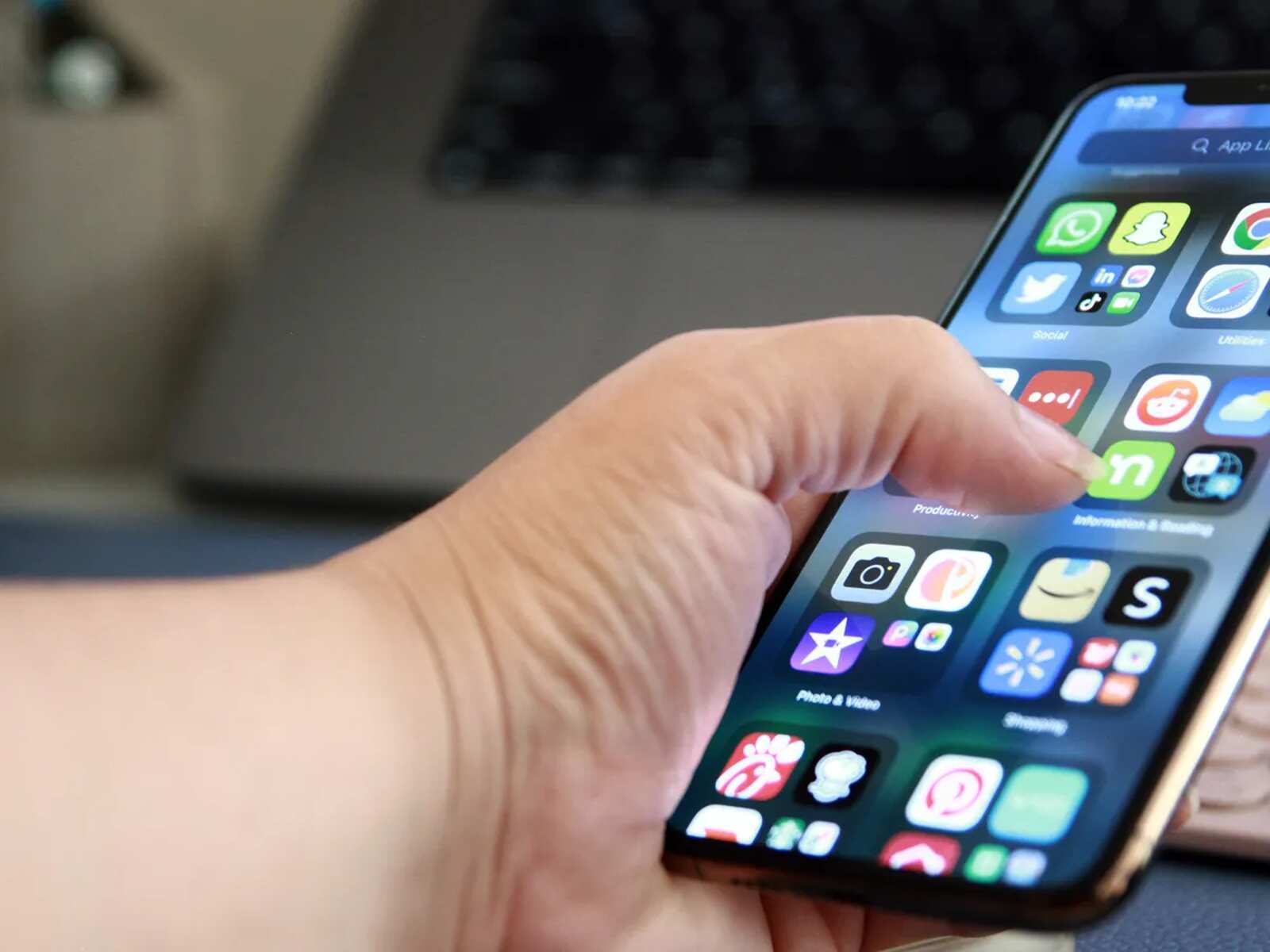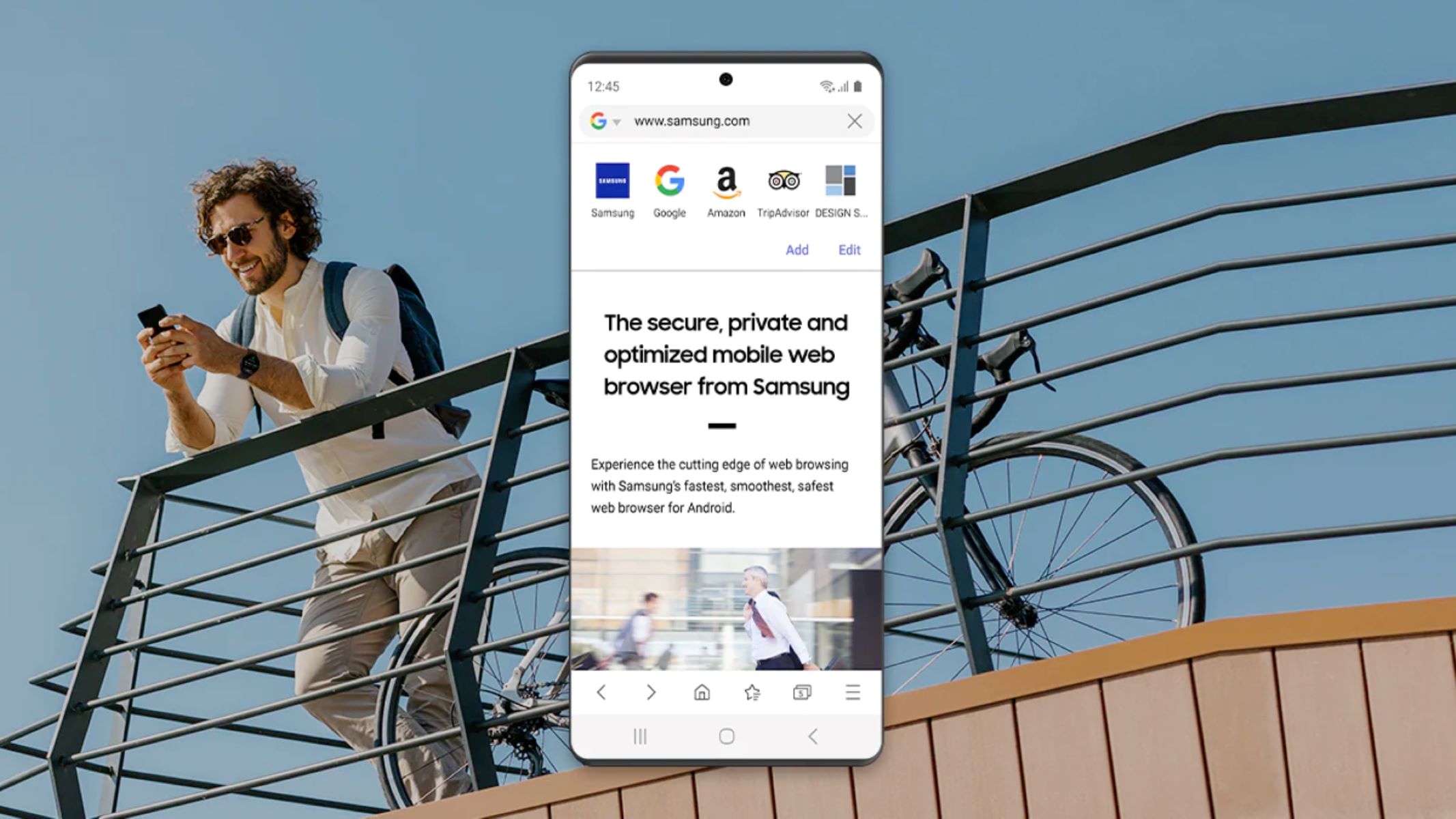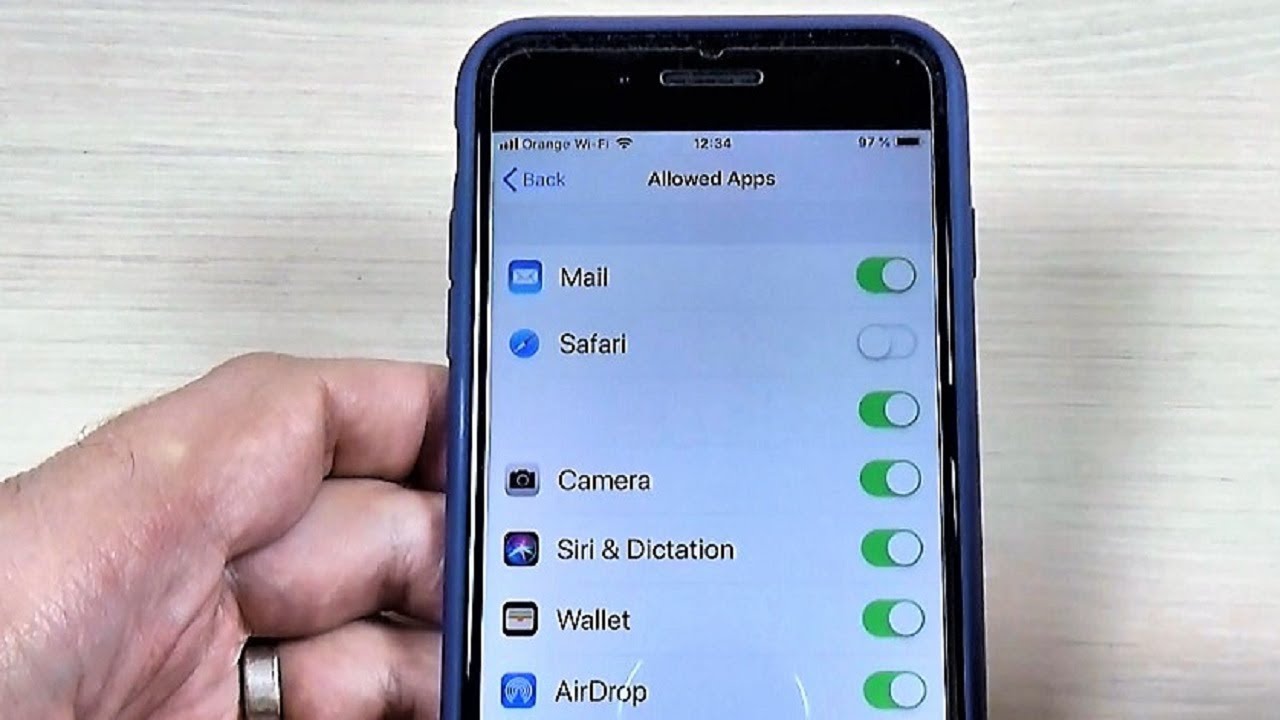Introduction
In today's digital age, mobile phones have become an indispensable part of our daily lives. From staying connected with loved ones to accessing a wealth of information, the capabilities of these handheld devices are truly remarkable. At the heart of this digital revolution lies the web browser, a gateway to the vast expanse of the internet. Whether you're searching for the latest news, streaming videos, or shopping online, the browser on your phone serves as your window to the online world.
As the demand for seamless and efficient web browsing experiences continues to soar, understanding the nuances of mobile browsers has become increasingly important. With a myriad of options available, each boasting unique features and capabilities, it's essential to grasp the fundamentals of these digital tools. From the familiar names to the lesser-known contenders, the world of mobile browsers is teeming with diversity, catering to the varied needs and preferences of users.
In this comprehensive guide, we will delve into the realm of mobile browsers, shedding light on their significance and the array of options at your disposal. Whether you're a tech enthusiast seeking to optimize your browsing experience or a casual user looking to explore new horizons, this exploration of mobile browsers is sure to provide valuable insights. So, let's embark on this enlightening journey to unravel the mysteries of the browser on your phone and discover the possibilities that await within this digital realm.
What is a browser?
A browser is a software application that enables users to access and navigate the World Wide Web. It serves as a gateway to the internet, allowing individuals to view web pages, access various online resources, and interact with web-based content. Essentially, a browser acts as a translator, interpreting the code of web pages and presenting it in a visually comprehensible format for users.
When a user enters a web address or clicks on a link, the browser sends a request to the relevant web server, which then retrieves the requested web page and sends it back to the browser. The browser then processes the received data and displays the web page, complete with text, images, videos, and interactive elements.
Moreover, browsers play a pivotal role in rendering web pages consistently across different devices and screen sizes. They interpret HTML, CSS, and JavaScript code to ensure that web content is displayed accurately and responsively, regardless of the device being used.
In addition to rendering web pages, modern browsers offer a plethora of features and functionalities to enhance the browsing experience. These may include tabbed browsing, bookmarking, private browsing modes, extensions and add-ons, as well as security features such as phishing and malware protection.
Furthermore, browsers have evolved to support a wide range of web technologies, enabling the seamless execution of web applications, multimedia content, and interactive features. From streaming videos and playing online games to accessing productivity tools and social media platforms, browsers have become versatile platforms for a myriad of online activities.
In essence, a browser serves as the digital gateway that empowers users to explore the boundless expanse of the internet, connecting them to a wealth of information, entertainment, and opportunities. As the digital landscape continues to evolve, browsers remain at the forefront, evolving to meet the ever-changing needs and expectations of users in the dynamic realm of the World Wide Web.
Types of browsers for mobile phones
When it comes to mobile browsing, users are presented with a diverse array of browser options, each offering unique features and capabilities tailored to meet the demands of modern-day internet usage. From the default browsers pre-installed on devices to third-party alternatives, the mobile browser landscape is rich with choices. Here are some of the prominent types of browsers for mobile phones:
-
Default Browsers: Most mobile devices come equipped with default browsers, such as Safari for iOS devices and Chrome for Android devices. These browsers are seamlessly integrated into the operating system and are designed to provide a cohesive and optimized browsing experience. They often boast deep integration with the device's features and settings, offering a seamless user experience out of the box.
-
Third-Party Browsers: In addition to default browsers, users have the option to explore third-party browsers available for download from app stores. These browsers, such as Firefox, Opera, and Microsoft Edge, offer a range of unique features, including enhanced privacy and security settings, customizable interfaces, and specialized browsing modes. They cater to users seeking a more personalized and feature-rich browsing experience beyond what default browsers offer.
-
Lite Browsers: With a focus on efficiency and data optimization, lite browsers have gained popularity, especially in regions with limited internet connectivity. These browsers, such as UC Browser Mini and Opera Mini, are designed to consume minimal data while providing a smooth browsing experience. They often incorporate data compression technologies to reduce the amount of data transmitted, making them ideal for users with limited data plans or slower network connections.
-
Privacy-Focused Browsers: As concerns about online privacy and data security continue to grow, privacy-focused browsers have emerged to address these apprehensions. Browsers like DuckDuckGo Privacy Browser and Brave prioritize user privacy by blocking trackers, offering built-in ad blockers, and implementing encryption features. These browsers appeal to users who prioritize their online privacy and seek a browsing experience with enhanced security measures.
-
Specialized Browsers: Beyond the conventional browsers, there are specialized browsers tailored for specific purposes. For instance, there are browsers optimized for gaming, offering features to enhance the gaming experience on mobile devices. Similarly, there are browsers designed for media consumption, providing seamless access to streaming services and multimedia content.
The diverse range of mobile browsers caters to the varied preferences and requirements of users, offering a spectrum of features, performance optimizations, and security enhancements. Whether users prioritize speed, privacy, data efficiency, or specialized functionalities, the abundance of mobile browsers ensures that there is a suitable option to meet their specific browsing needs.
Popular browsers for mobile phones
When it comes to mobile browsing, several browsers have garnered widespread popularity, offering a diverse range of features and functionalities to cater to the needs of users. These browsers have carved a niche for themselves in the competitive landscape of mobile browsing, each bringing its unique strengths and capabilities to the forefront. Let's explore some of the most popular browsers for mobile phones:
Safari
As the default browser for iOS devices, Safari has established itself as a prominent player in the mobile browsing arena. Renowned for its seamless integration with the iOS ecosystem, Safari offers a polished and intuitive browsing experience. With features such as tabbed browsing, Reader mode for distraction-free reading, and iCloud syncing of bookmarks and browsing history, Safari embodies the essence of user-centric design and performance optimization.
Google Chrome
Google Chrome stands as the default browser for Android devices and has garnered a massive user base due to its robust feature set and seamless synchronization with the Chrome desktop browser. Offering a wealth of extensions, seamless tab management, and Google account integration for personalized browsing experiences, Chrome has become a go-to choice for Android users seeking a feature-rich and versatile browsing platform.
Firefox
Mozilla Firefox has been a stalwart in the realm of web browsers, and its mobile counterpart continues to uphold its legacy. Firefox for mobile devices emphasizes privacy and customization, offering features such as Enhanced Tracking Protection, customizable extensions, and a streamlined user interface. With a commitment to open-source principles and user empowerment, Firefox appeals to users seeking a privacy-focused and customizable browsing experience.
Opera
Opera has carved a niche for itself with its innovative approach to mobile browsing, introducing features such as data compression, built-in ad blocking, and a customizable news feed. Opera Mini, the lightweight version of the browser, is particularly popular among users in regions with limited data connectivity, as it optimizes data usage without compromising on the browsing experience. Opera's commitment to efficiency and user-centric features has earned it a dedicated user base.
Microsoft Edge
Microsoft Edge has undergone a significant transformation, transitioning to a Chromium-based engine to deliver enhanced performance and compatibility. With features such as seamless synchronization with the desktop version, built-in tracking prevention, and immersive reading mode, Microsoft Edge has positioned itself as a compelling choice for users seeking a seamless and integrated browsing experience across their devices.
Brave
Brave Browser has garnered attention for its emphasis on privacy, offering built-in ad and tracker blocking, as well as a unique rewards system that allows users to earn cryptocurrency for opting into privacy-respecting ads. With a focus on speed, security, and user empowerment, Brave has resonated with users seeking a browsing experience that prioritizes privacy and performance.
These popular browsers for mobile phones represent a diverse spectrum of choices, each catering to specific user preferences and priorities. Whether users prioritize seamless integration with their device ecosystem, privacy and security features, or performance optimizations, the abundance of options ensures that there is a suitable browser to meet their individual needs.
How to change the default browser on your phone
Changing the default browser on your phone can empower you to tailor your browsing experience to suit your preferences and needs. Whether you're seeking enhanced features, improved privacy settings, or a different user interface, switching to a new default browser can breathe new life into your mobile browsing journey. Here's a step-by-step guide to changing the default browser on your phone:
For Android Devices:
- Access Settings: Open the "Settings" app on your Android device.
- Navigate to Apps & Notifications: Scroll down and select "Apps & notifications" from the Settings menu.
- Select Default Apps: Tap on "Advanced" to expand the options, then select "Default apps."
- Choose Browser App: Under the "Default apps" menu, locate and tap on "Browser app."
- Select New Default Browser: A list of installed browsers will appear. Choose your preferred browser from the list to set it as the default.
For iOS Devices:
- Access Settings: Open the "Settings" app on your iOS device.
- Scroll Down to Browser App Settings: Scroll down and look for the settings related to your current default browser.
- Select Default Browser: Tap on the current default browser to view available alternatives.
- Choose New Default Browser: From the list of available browsers, select the one you wish to set as the default.
Additional Considerations:
- Data Transfer: When switching default browsers, consider transferring your bookmarks, browsing history, and saved passwords to the new browser to ensure a seamless transition.
- Explore Settings: Once you've changed the default browser, explore the settings and customization options offered by the new browser to tailor your browsing experience further.
- Stay Updated: Keep your new default browser updated to access the latest features, security enhancements, and performance optimizations.
By following these simple steps, you can seamlessly change the default browser on your phone, unlocking a world of possibilities and customization to elevate your mobile browsing experience. Whether you opt for a browser renowned for its privacy features, a feature-rich powerhouse, or a lightweight and efficient option, the ability to change the default browser empowers you to curate a browsing experience that aligns with your unique preferences and priorities.
Conclusion
In conclusion, the browser on your phone serves as a gateway to the boundless expanse of the internet, offering a myriad of possibilities and opportunities at your fingertips. From the default browsers seamlessly integrated into the operating systems of mobile devices to the diverse array of third-party alternatives, the world of mobile browsers is teeming with options, each catering to the unique needs and preferences of users.
As we've delved into the realm of mobile browsers, it's evident that these digital tools play a pivotal role in shaping our online experiences. Whether it's the seamless integration with device ecosystems, privacy-focused features, data efficiency, or specialized functionalities, the abundance of mobile browsers ensures that there is a suitable option to meet the specific browsing needs of users.
Furthermore, the popularity of browsers such as Safari, Google Chrome, Firefox, Opera, Microsoft Edge, and Brave underscores the diverse spectrum of choices available to users. Each of these browsers brings its unique strengths and capabilities to the forefront, catering to specific user preferences, whether it's seamless integration with device ecosystems, privacy and security features, or performance optimizations.
Moreover, the ability to change the default browser on your phone empowers you to tailor your browsing experience to suit your preferences and needs. Whether you prioritize enhanced features, improved privacy settings, or a different user interface, switching to a new default browser can breathe new life into your mobile browsing journey.
In essence, the world of mobile browsers is a dynamic and ever-evolving landscape, driven by innovation, user-centric design, and a commitment to empowering users with seamless and enriching browsing experiences. As technology continues to advance, we can anticipate further enhancements and innovations in the realm of mobile browsers, offering users even more personalized and immersive ways to explore the digital realm.
Ultimately, the browser on your phone is not just a digital tool; it's a gateway to knowledge, entertainment, connectivity, and empowerment. It's a companion that accompanies you on your digital adventures, enabling you to navigate the vast expanse of the internet with ease and convenience. So, as you embark on your browsing journey, may you find the perfect browser that resonates with your preferences, elevating your digital experiences and opening doors to new discoveries in the ever-expanding digital universe.









